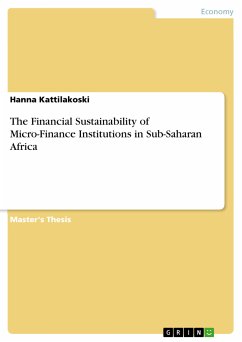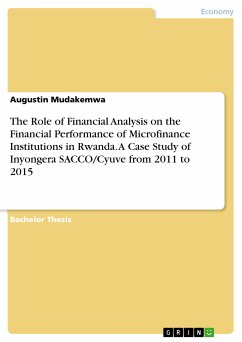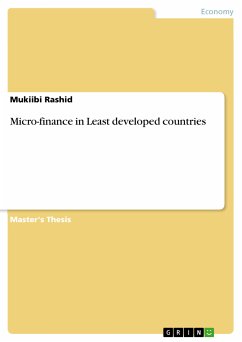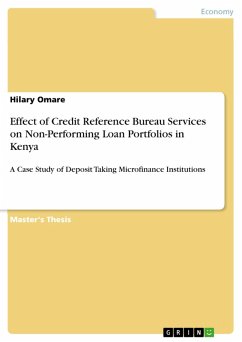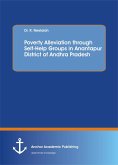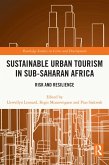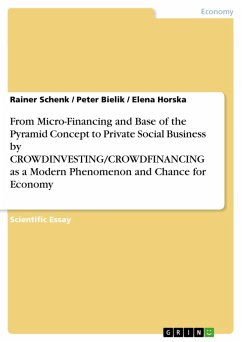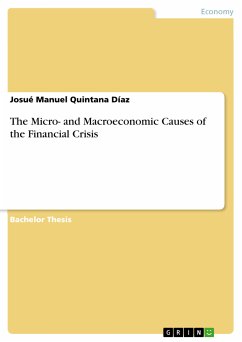Master's Thesis from the year 2018 in the subject Business economics - Investment and Finance, grade: 90.0, Cologne Business School Köln, language: English, abstract: The aim of this study is to understand the factors that drive financial sustainability in microfinance institutions. To accomplish this, several indicators for operational self-sufficiency (OSS) were investigated through correlation and regression analysis. The results indicate that the drivers for operational self-sufficiency include return on assets, number of active borrowers and profit margin. The analysis also showed that in terms of OSS and profitability, there is little difference between for-profit and non-profit organizations. To increase operational self-sufficiency institutions should increase return on asserts, the number of active borrowers and their profit margin. The results support the profit-incentive theory and the financial systems approach. These results indicate that to achieve financial sustainability MFIs should focus on covering operating expenses through earned revenues. Therefore, MFI structure should encourage cost-oriented management. Additionally, findings from this study revealed that there may not be a large tradeoff in efficiency and outreach. Results showed that operationally self-sufficient MFIs actually have a larger outreach than non-self-sufficient organizations. Limitations for this study include that the regression only explains the variables affecting OSS with 26 % certainty and other variables not tested may also be factors
Dieser Download kann aus rechtlichen Gründen nur mit Rechnungsadresse in A, B, BG, CY, CZ, D, DK, EW, E, FIN, F, GR, HR, H, IRL, I, LT, L, LR, M, NL, PL, P, R, S, SLO, SK ausgeliefert werden.

